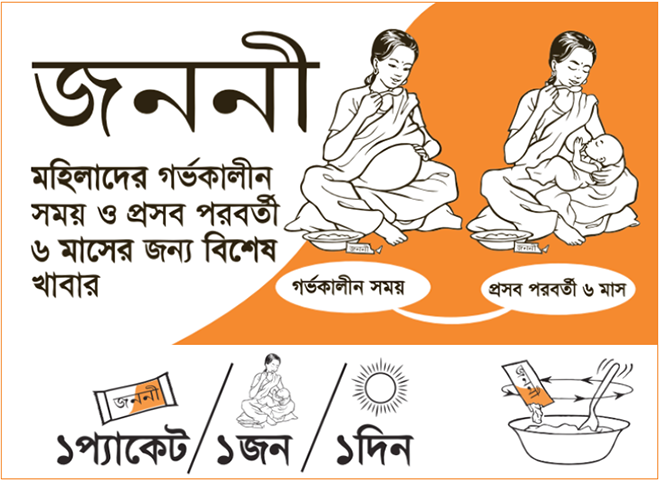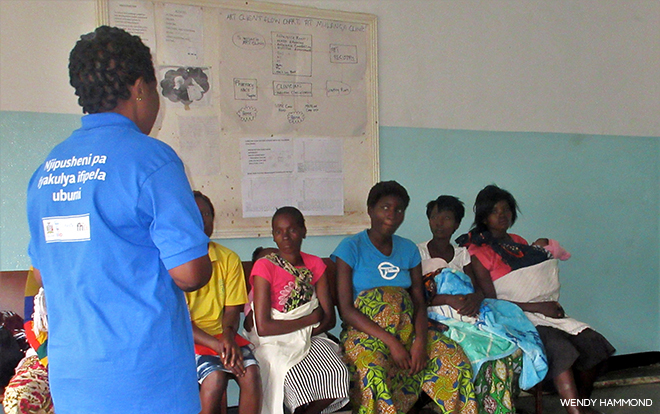Implementation science, broadly speaking, examines how to best implement proven interventions in real-world contexts and at scale. While the term’s definition is still evolving, there is growing interest in this area of research as the global nutrition community works to improve program effectiveness and maximize limited resources. Moreover, the U.S. Agency for International Development (USAID) highlighted implementation science in its Multi-Sectoral Nutrition Strategy as a means of strengthening the evidence base for effective nutrition programming.
Implementation science is central to FANTA’s mandate to help improve nutrition programming by translating research and experience into evidence-based program guidance and practice. Much of FANTA’s implementation science work prioritizes program beneficiaries, exploring their experiences and perspectives to learn how services and interventions can best respond to their needs, which in turn can make beneficiaries more likely to use services and adopt recommended behaviors. FANTA and/or its partners have conducted or are conducting implementation-related research in a range of areas, from growth monitoring and promotion programs in Madagascar to programs for preventing malnutrition among children under 2 years of age in Burundi and Guatemala to efforts to develop, validate, and promote food-based recommendations to improve the nutrient intake of women and children in Guatemala. Some examples of FANTA’s implementation science work include the following.
Implementation science is central to FANTA’s mandate to help improve nutrition programming by translating research and experience into evidence-based program guidance and practice.
Exclusive Breastfeeding and Family Planning in Madagascar
Exclusive breastfeeding and the use of modern contraceptive methods such as the lactation amenorrhea method together can improve infant nutrition and support the healthy timing and spacing of pregnancies. However, in Madagascar, few postpartum women have adopted these practices.
FANTA conducted a literature review and formative research to support efforts to promote the lactation amenorrhea method and exclusive breastfeeding in USAID program areas in Madagascar. The research identified barriers and facilitators to adopting the practices and recommended implementation strategies to increase their use. Strategies include strengthening training on the methods for health care providers and community health workers, ensuring that education and counseling on exclusive breastfeeding and modern contraception are integrated into antenatal care and other key services for pregnant women, and identifying ways to involve men and others in the community in promoting and supporting family planning and exclusive breastfeeding.
Integrating Family Planning into Food Security and Nutrition Activities in Malawi
FANTA is conducting a qualitative formative research study in collaboration with the USAID/Food for Peace (FFP)-funded Njira project in Malawi. The research will inform the strategic design of family planning activities within Njira’s broader food security and nutrition activities. The study is intended to generate learning on a process to help identify how to best integrate family planning into FFP development food security activities, given the overarching project design, local context, the health system’s existing family planning services, and beneficiaries’ perspectives on family planning and service delivery.

Images and instructions from a small-quantity LNS sachet for pregnant and lactating women in Bangladesh.
Evidence Base for Small-Quantity Lipid-Based Nutrient Supplements
Small-quantity lipid-based nutrient supplements (SQ-LNS) have been used in nutrition interventions at least since 2009. However, there is little research on their effectiveness in preventing malnutrition in program settings, and currently there are no international guidelines on implementation. To better understand the supplements’ effectiveness in preventing malnutrition, FANTA and the International Lipid-Based Nutrient Supplements Project brought together researchers, programmers, LNS producers, and donors involved with projects that have used SQ-LNS to share experiences, challenges, and lessons learned at an October 2015 meeting in Washington, DC. Participants identified several programmatic considerations and operational conditions to think about when using SQ-LNS to help prevent malnutrition and encouraged programs to capture and share information on their interventions’ processes and impact.
Participants also identified a potential SQ-LNS research agenda to explore implementationrelated issues such as what would be the minimum package of interventions to combine with SQ-LNS to address stunting and what approaches for delivering SQ-LNS are the most cost effective and can reach the most vulnerable people.
Much of FANTA’s implementation science work prioritizes program beneficiaries, exploring their experiences and perspectives to learn how services and interventions can best respond to their needs, which in turn can make beneficiaries more likely to use services and adopt recommended behaviors.
Research shared at the meeting included an evaluation by FANTA and its partners on using SQ-LNS to improve nutrition among pregnant and lactating women and their children in Bangladesh. The cluster-randomized, controlled effectiveness study is examining how supplementing mothers’ diets with SQ-LNS or iron/folic acid impacts the health and nutrition of the mothers and their newborns and how supplementing a child’s diet with SQ-LNS or multiple micronutrient powder affects the child’s nutrition, health, and developmental outcomes. The portion of the study related to implementation science is evaluating the operational aspects of delivering the supplements through community-based programs, assessing beneficiaries’ willingness to pay for SQ-LNS and multiple micronutrient powder, and each supplementation approach’s cost and costeffectiveness. The findings are expected to be published in 2017.
Nutrition Assessment, Counseling, and Support in Namibia
FANTA worked with the Ministry of Health and Social Services in Namibia to review the quality of nutrition assessment, counseling, and support (NACS) implementation at health facilities in six districts. The assessment was designed to help lay the groundwork for a quality improvement process, inform efforts to scale up to additional facilities, and to institutionalize NACS as a routine standard of care throughout the country. The review yielded several recommendations to strengthen NACS implementation, addressing, among other factors, the availability of resources needed to implement NACS, the knowledge and skills of trained health care providers and the barriers they face in integrating NACS into routine health services, and client awareness and use of NACS services. The ministry’s Food and Nutrition Sub-Division used the report to note challenges in NACS implementation and make recommendations for improvements.

Evaluation of NACS and Its Contribution to Key HIV Outcomes in Zambia
To help improve HIV patient outcomes at five NACS sites in Zambia’s Kitwe District, FANTA provided routine NACS refresher training, mentoring, and supervision for facility-based health care providers and trained community nutrition volunteers to promote antiretroviral therapy (ART) adherence and retention through nutrition screening, education, client tracing, and interpersonal counseling to encourage client self-management and behavior change. FANTA is also conducting a quantitative and qualitative evaluation of the contribution of NACS to improved HIV engagement, adherence, and retention outcomes at the five sites. The research findings are expected to help strengthen the planning and implementation of NACS services in Zambia and contribute to the evidence base on integrating nutrition into HIV care and treatment.


